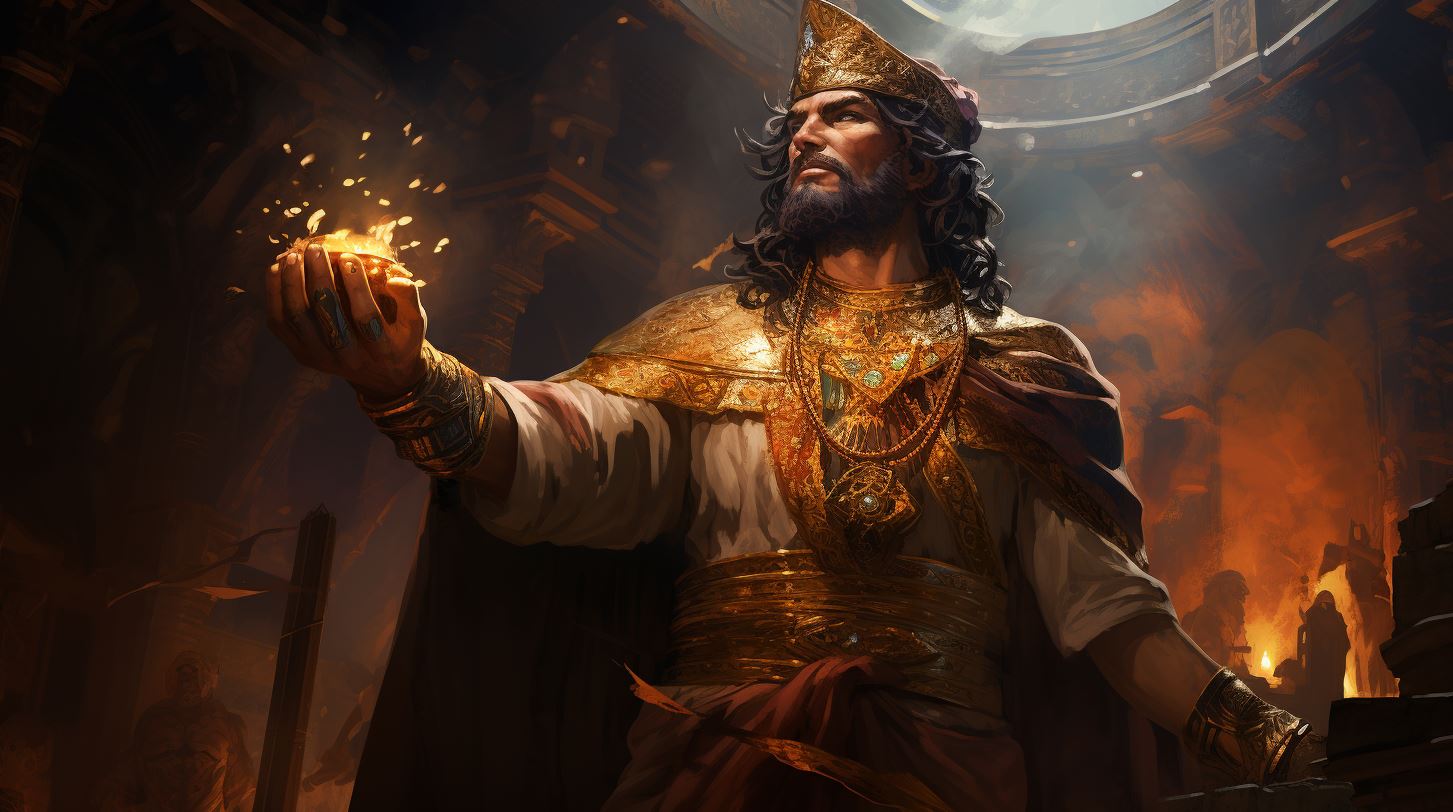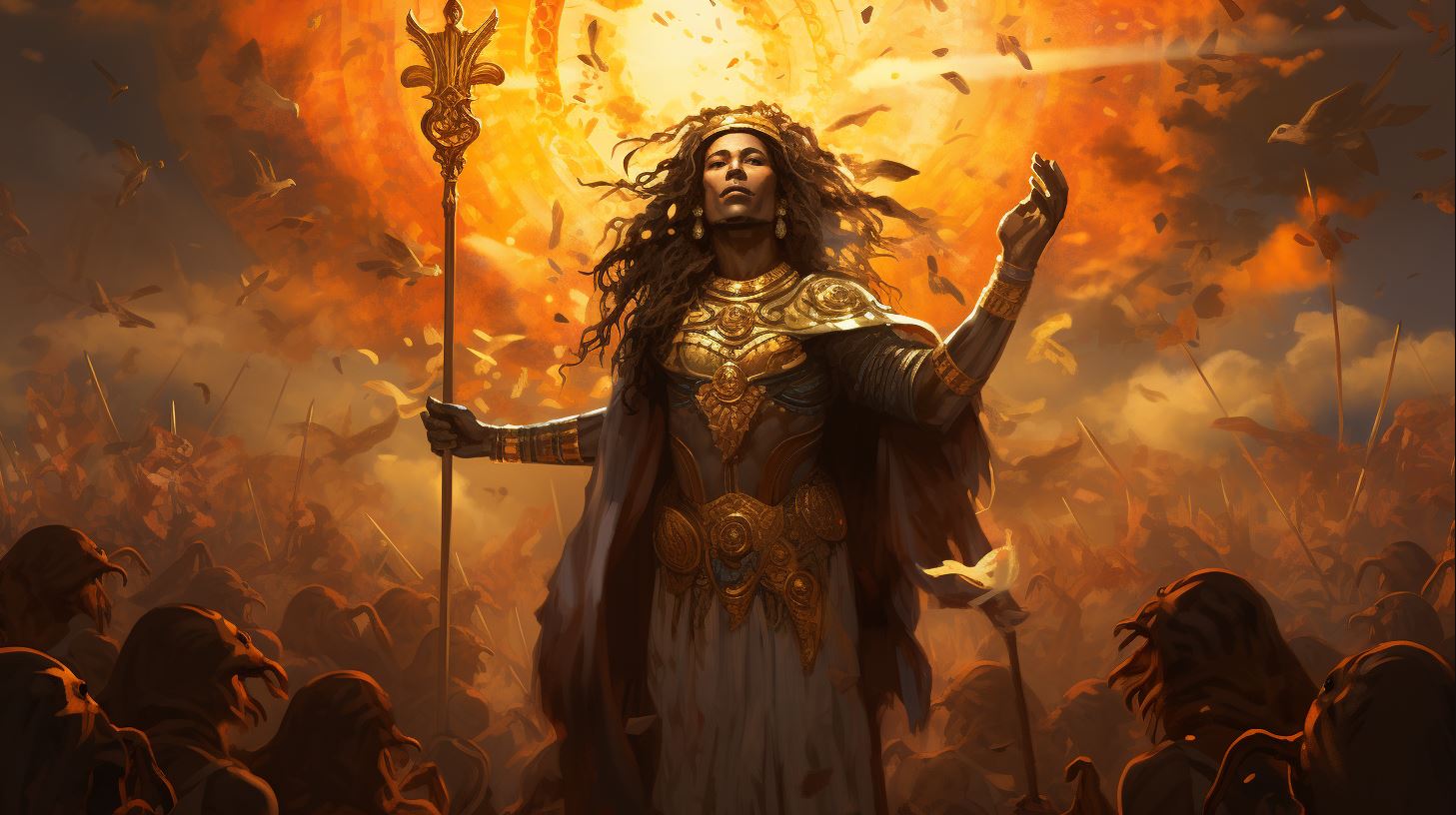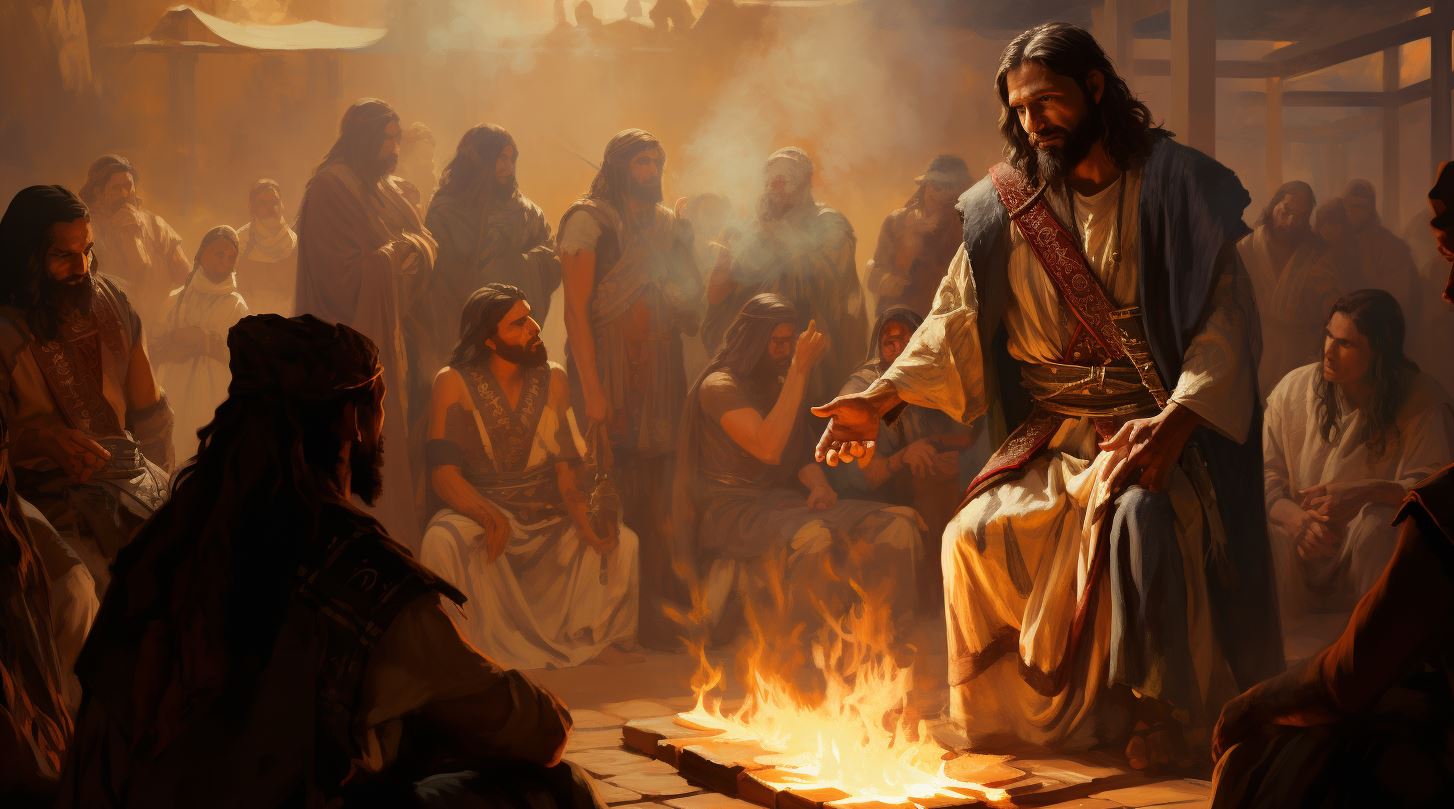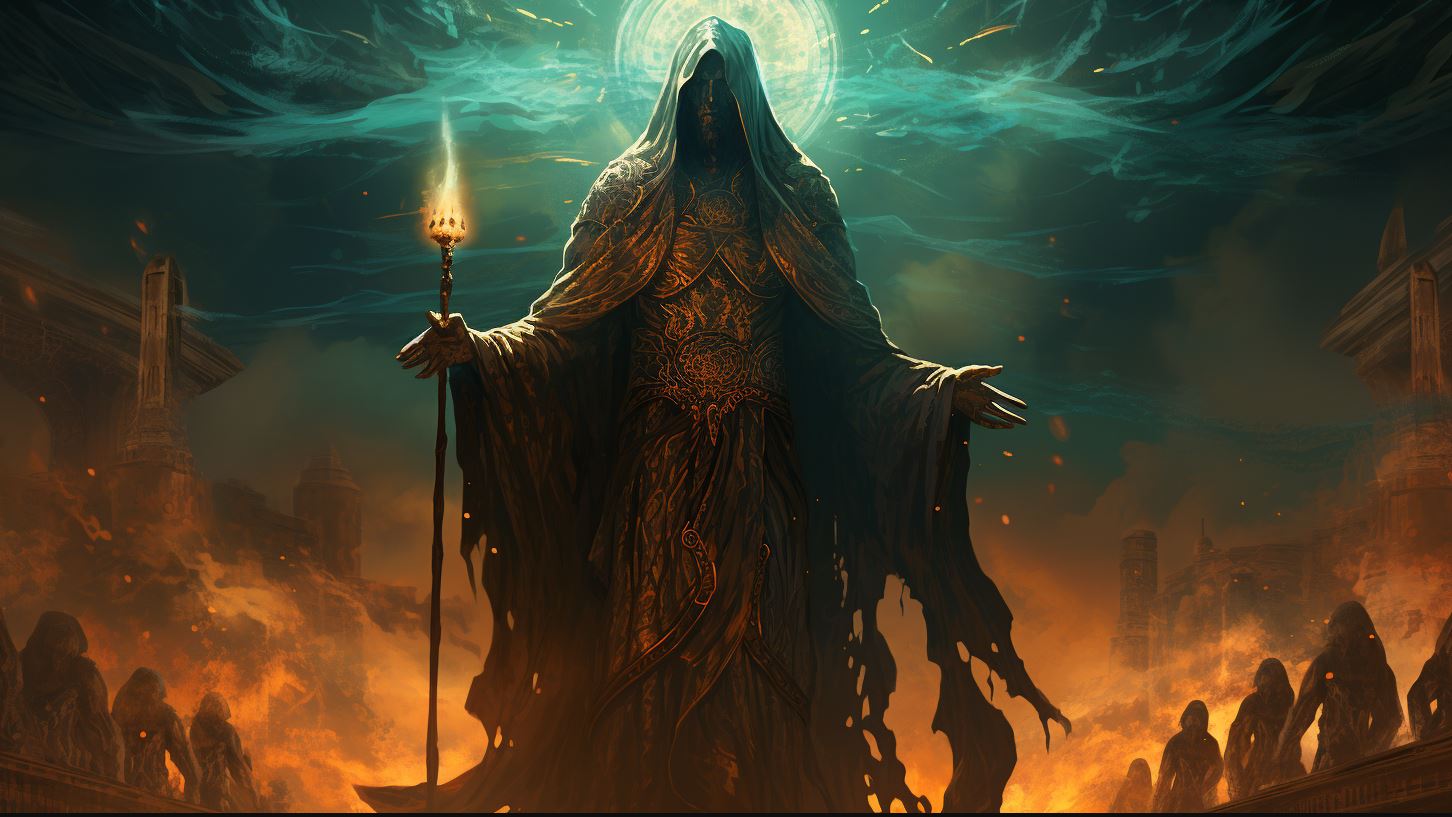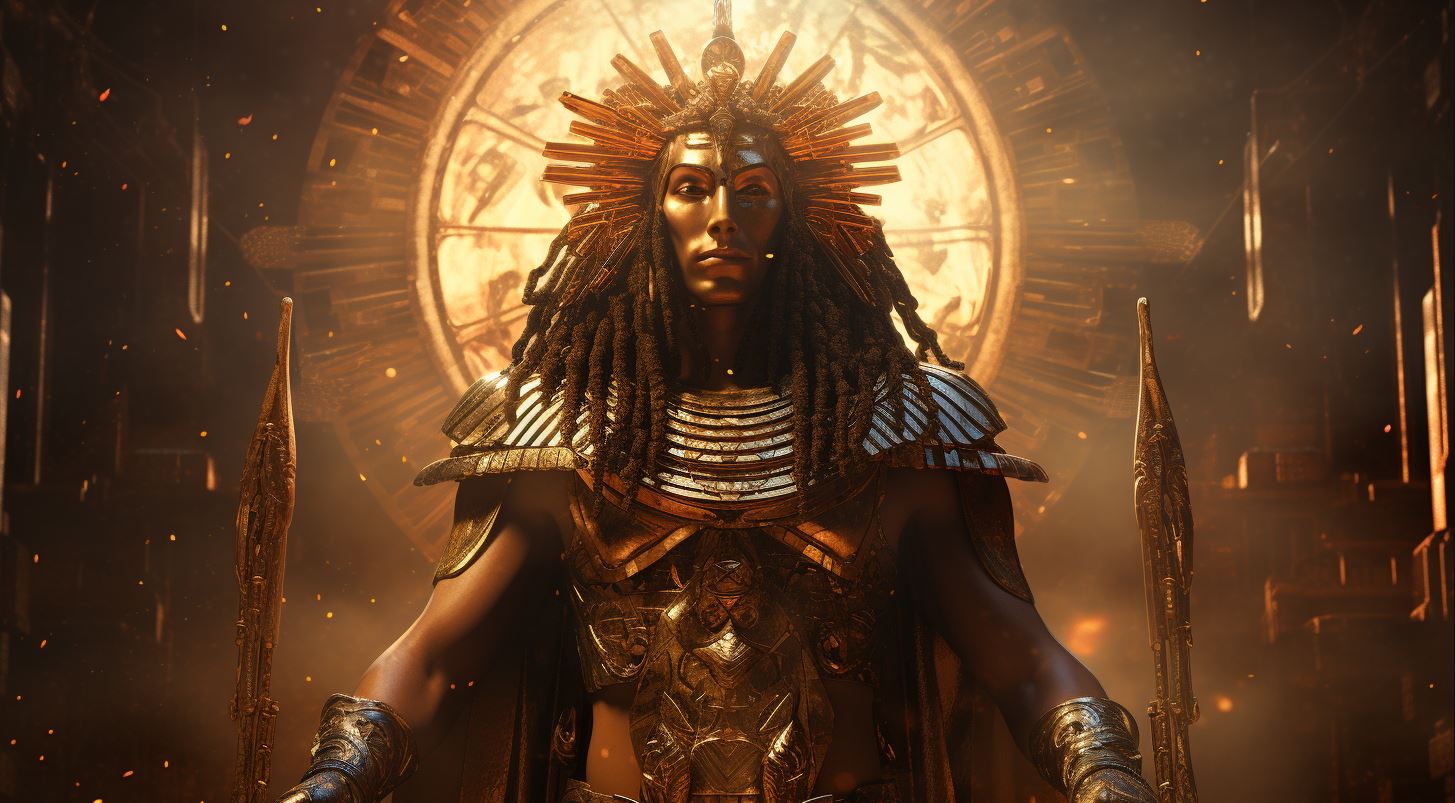Gad God: Unveiling the Ancient Semitic Deity and Its Relevance Today
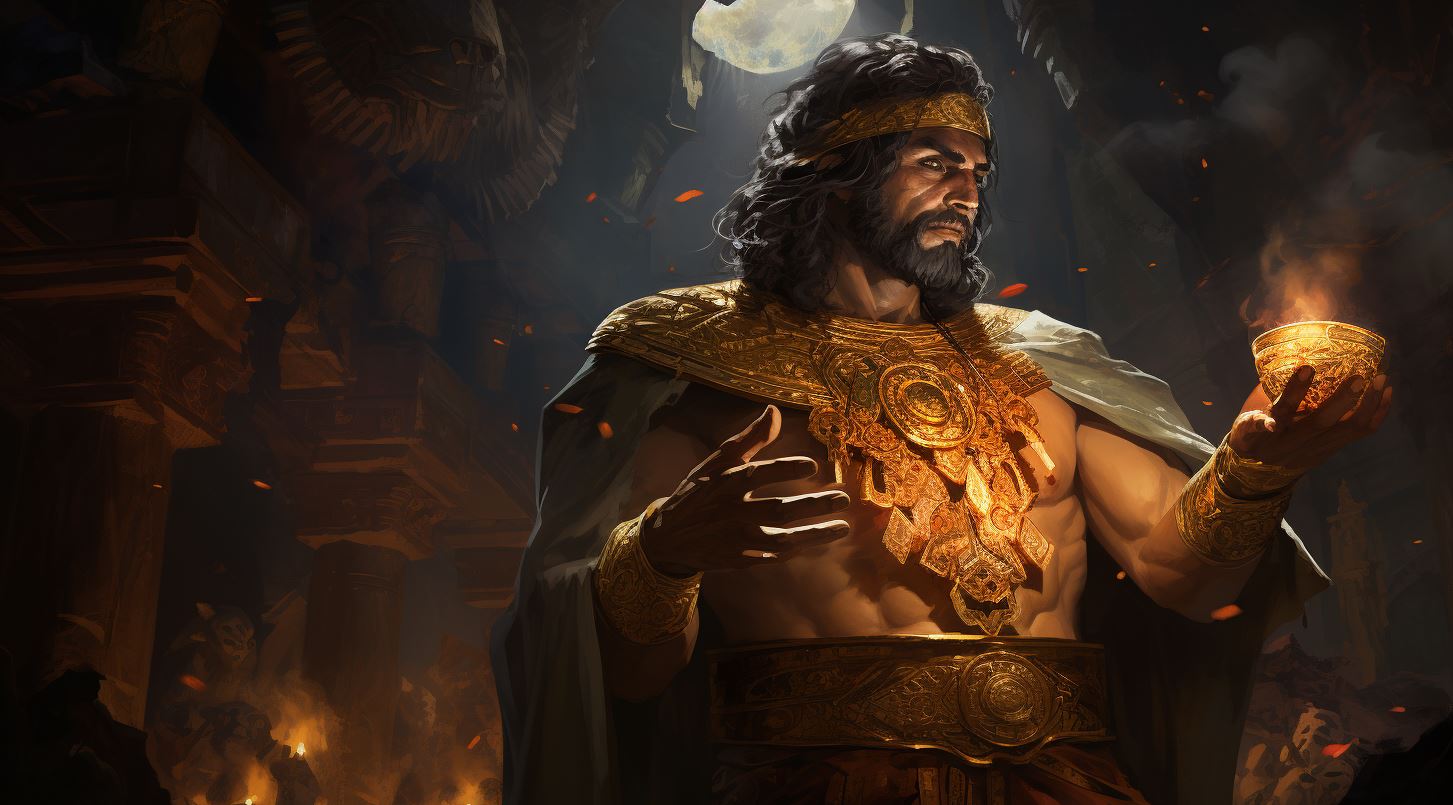
Gad God, an ancient Semitic deity, holds significance in both mythology and biblical accounts. Mentioned as a god of fortune and a fierce warrior tribe in the Bible, Gad’s historical presence is undeniable.
Evidence suggests the worship of Gad in ancient Canaan, with possible connections to the Babylonian god Marduk and the Roman deity Jupiter. Controversy arises regarding Gad and Meni, who are both cursed in Isaiah 65:11.
Jewish tradition associates Gad with Jupiter and Meni with Venus, offering an astrological perspective. Today, Gad God continues to leave a cultural legacy, influencing beliefs and inspiring modern interpretations.
The Origin of Gad: Exploring the Ancient Semitic Tribe
As we delve into the intriguing history of Gad, we are compelled to examine its origins within Semitic mythology and its existence as either a deity or a historical tribe. Various ancient texts and accounts shed light on this enigmatic figure, prompting scholarly debates and inquiries.
Gad in Semitic Mythology: Deity or Historical Tribe?
When exploring the role of Gad in Semitic mythology, we are faced with the question of whether Gad was worshipped as a deity or represented a historical tribe. Although limited information exists regarding Gad’s status as a god or a tribe, the presence of place names and personal references suggests the existence of Gad worship among ancient Canaanites.
Gad in the Bible: The Seventh Son of Jacob and a Fierce Warrior Tribe
In the biblical context, Gad emerges as the seventh son of Jacob, forming one of the twelve tribes of Israel. Known for their reputation as fierce warriors, the tribe of Gad played a significant role in various historical events, particularly during battles and conflicts.
Their bravery and military prowess distinguish them in biblical accounts and shape their narrative within ancient Israelite culture.
Gad as a Hebrew Prophet: His Contributions to David’s Reign and Temple Music
In addition to Gad’s role as a tribe and a warrior, we also encounter references to a Hebrew prophet named Gad who lived during the time of King David.
Gad served as an advisor and counselor to David, lending his prophetic insight and expertise. Furthermore, Gad played a noteworthy role in organizing and overseeing the musical services in the Temple, highlighting his multifaceted contributions beyond warfare.
In conclusion, the origin of Gad spans across various aspects, encompassing both mythological and biblical narratives. Whether viewed as a deity or a historical tribe, Gad’s significance remains evident through its presence in ancient texts and its contributions to the cultural and religious landscape.
The Cult of Gad in Canaan: Places and Personal Names as Evidence
One way to trace the cult of Gad is by examining the presence of place names related to Gad worship in Canaan. The names of certain cities and regions provide hints about the significance of Gad in those areas.
Additionally, personal names bearing the element “Gad” indicate a connection between individuals and the deity, suggesting a deep-rooted devotion to Gad in Canaanite society.
Gad’s Connection to Babylonian Marduk and Roman Jupiter: Syncretism or Coincidence?
A captivating aspect of Gad’s worship is its alleged association with prominent ancient deities such as the Babylonian Marduk and the Roman Jupiter. Some scholars argue that these connections imply a syncretic merging of beliefs, while others propose coincidental similarities.
Exploring these links sheds light on the influence that neighboring civilizations had on the worship of Gad and its potential evolution over time.
Isaiah’s Curse: Shedding Light on the Worship of Gad and Meni
In the book of Isaiah, a curse is pronounced upon those who worship Gad and Meni.
This enigmatic passage prompts us to delve deeper into the nature of their worship. Are Gad and Meni separate deities or different aspects of the same divine entity? Seeking answers to these questions helps unravel the significance of these deities within the ancient Canaanite cult.
Overall, exploring the worship of Gad in ancient Canaan provides valuable insights into the religious practices and beliefs of the Semitic people. By examining places, personal names, and their potential connections to other deities, we gain a better understanding of the role that Gad played in the lives of these ancient worshippers.
Gad and Meni in Jewish Tradition: Planetary Associations and Beyond
Exploring the rich cultural and religious traditions of Judaism, the association of Gad and Meni with planetary influences has captivated scholars and believers alike. This section delves into their significance within Jewish tradition, shedding light on their planetary identifications and their roles in astrology and folklore.
Gad’s Association with Jupiter: Exploring the Jewish Perspective
Within Jewish belief systems, Gad is often associated with the planet Jupiter. This association stems from ancient astrological connections and interpretations. Jewish texts and commentaries discuss Gad’s planetary correspondence, emphasizing the potential impact of Jupiter’s influence on those born under Gad’s sign.
Meni and Venus: Unraveling the Planetary Identifications
Analyses of ancient manuscripts and interpretations of biblical texts have led to the identification of Meni with Venus, attributing the celestial body’s qualities, such as love, beauty, and attraction, to Meni’s sphere of influence.
Jewish folklore and rituals related to Venus and Meni offer insight into how this association has shaped cultural practices and belief systems.
Gad and Meni’s Role in Jewish Astrology and Folklore
Beyond their planetary associations, Gad and Meni play significant roles in Jewish astrology and folklore.
Astrologers in Jewish communities have developed intricate systems and interpretations centered around these deities, delving into their influence on personal and collective destinies. Folk traditions have incorporated Gad and Meni into rituals, celebrations, and folklore, considering their guidance and blessings in various aspects of life.
Understanding the deep-rooted connections between Gad, Meni, and planetary influences is crucial to comprehending their importance within Jewish tradition. Their significance continues to resonate within contemporary Jewish communities, shaping beliefs, rituals, and cultural expressions even in the modern era.
Gad God in Modern Perspective: Relevance and Interpretations
Gad’s Influence on West Semitic Beliefs and Practices
Gad, a prominent figure in ancient Semitic traditions, continues to exert a significant influence on West Semitic beliefs and practices. His role as a deity associated with fortune and a fierce warrior tribe has left a lasting impact on the cultural fabric of the region.
Today, many aspects of West Semitic religions can be traced back to the worship and influence of Gad, including rituals, symbols, and even certain ethical principles. The veneration of Gad has shaped and continues to shape the religious landscape of this region.
Debates and Interpretations: Gad’s Relationship with Baal and Astarte
One topic of much debate and scholarly discourse revolves around Gad’s relationship with other prominent deities like Baal and Astarte. Some argue that Gad was simply an alternative name or aspect of Baal, while others suggest that Gad and Astarte shared overlapping cultic practices.
These debates highlight the complex nature of ancient religious beliefs and the fluidity of divine identities and associations. Gad’s connections with other deities offer insights into the syncretic nature of ancient Semitic religions and the interplay between different cults in the region.
Gad’s Concept of Fortune: Examining the Notions of Good Fortune and Destiny
A central aspect of Gad’s worship revolved around the concept of fortune. Gad was believed to bestow good fortune upon his worshippers, bringing luck, prosperity, and success. However, the notion of fortune extended beyond mere material wealth.
It also encompassed one’s destiny and the divine orchestration of events in an individual’s life. Understanding Gad’s concept of fortune provides valuable insights into the ancient understanding of fate and the interconnectedness of human beings with the divine realm.
It sheds light on the beliefs and practices of individuals seeking favor from Gad, hoping to shape their lives positively.
Gad God Today: Cultural References and Legacy
Gad God’s influence resonates in various aspects of modern culture, leaving a lasting legacy that continues to captivate academic discourse, literary works, popular culture, and societal beliefs. This section explores the cultural references and interpretations associated with Gad in contemporary society.
Gad in Linguistics and Academic Discourse: Insights from Eerdmans Dictionary
Academic discussions surrounding the Gad deity extend to the field of linguistics, with Gad’s name and its historical significance being analyzed. Scholars utilize resources like Eerdmans Dictionary to gain further insights into the etymology and linguistic context of Gad.
Linguistic analysis sheds light on the cultural and social implications of Gad’s worship and how it shaped ancient Semitic societies.
Gad’s Presence in Literary Works and Popular Culture: A Modern Interpretation
Throughout history, Gad God has left its mark on literature, inspiring authors to integrate this deity into their narratives.
Literary works often explore the themes of strength, fortune, and destiny associated with Gad. Contemporary authors continue to incorporate Gad’s symbolism in their stories, examining its relevance within the modern human experience.
From epic tales to contemporary novels, Gad’s presence continues to fascinate readers and sparks discussions on faith, mythology, and existential questions.
In addition to literature, Gad’s influence can be seen in popular culture, including movies, television shows, and even video games.
The divine attributes of Gad are often featured in character developments, storylines, and visual representations. This inclusion in popular culture not only showcases the enduring allure of Gad but also brings ancient divine figures to a wider audience, fostering discussions about ancient mythology and its impact on modern imagination.
Gad as a Symbol of Strength and Fortune: Resonance in Contemporary Society
In contemporary society, Gad’s association with strength and fortune continues to generate interest and intrigue. Gad represents an embodiment of power, resilience, and good luck, making it a symbol that people connect with in their pursuit of success and prosperity.
Whether as an emblematic figure in personal beliefs or as a representation of overcoming challenges, Gad serves as a source of inspiration for individuals seeking to harness their own inner strength.
Beyond personal interpretations, Gad’s symbolism extends to broader concepts such as national identity and cultural heritage. In some communities, Gad acts as a symbol of collective strength and unity, reminding individuals of their shared history and the resilience of their ancestors.
- Emblem of power and resilience
- Symbol of good luck and prosperity
- Representation of overcoming challenges
- Inspiration for personal growth and strength
- Connection to national identity and cultural heritage
Gad God’s multifaceted symbolism and cultural references continue to shape contemporary narratives, providing individuals with a sense of identity, inspiration, and collective strength.
…

